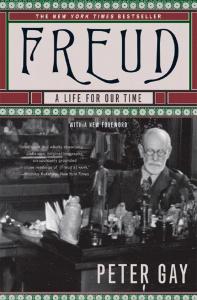Unveiling the Illusion:
A Review of Sigmund Freud's The Future of an Illusion
Sigmund Freud is a well-known figure in psychology whose theories and ideas have greatly influenced the field. One of his most famous works, The Future of an Illusion, continues to spark debate and discussion among scholars and readers alike.
Published in 1927, "The Future of an Illusion" is a short book that delves into religion and its role in human society. Freud argues that religion is an illusion created by humans to fulfill their inner desires and provide a sense of security in the face of a chaotic and unpredictable world. He also explores the origins of religion, its relationship with science, and its impact on individual and societal well-being.
One of the primary concepts in The Future of an Illusion is the idea that religion serves as a form of wish fulfillment. According to Freud, religion offers promises of a better afterlife and a sense of purpose in life, which ultimately stems from our unconscious desires and fears. This illusion, in turn, provides comfort and a sense of control in an uncertain world.
Freud also discusses the concept of an omnipotent father figure in religion, which he believes is a projection of our need for a protective and powerful authority figure. This concept ties into his theory of the Oedipus complex and the role of religion in suppressing our primal desires.
Despite being written almost a century ago, The Future of an Illusion remains highly relevant today. With the rise of secularism and the advancement of science and technology, many individuals are questioning the role of religion in their lives. This book offers a thought-provoking perspective on the origins and purpose of religion, encouraging readers to critically examine their beliefs and the impact of religion on society.
Furthermore, Freud's concept of religion as wish fulfillment can be applied to other aspects of modern life, such as consumerism and social media. In a world where we are constantly bombarded with images and messages promising happiness and fulfillment, The Future of an Illusion is a cautionary reminder to question our desires and motivations.
Without acknowledging the criticism and controversy surrounding Freud's ideas, no review of "The Future of an Illusion" would be complete. Many scholars and religious leaders have criticized his theories, arguing that they are reductionist and do not consider the complexity and diversity of religious beliefs and experiences. Some have also accused Freud of projecting his own biases and beliefs onto his analysis of religion.
However, despite criticism, The Future of an Illusion remains a thought-provoking and influential work in the field of psychology and beyond.
In conclusion, "The Future of an Illusion" by Sigmund Freud offers a compelling exploration of the origins and purpose of religion. Its ideas and concepts continue to spark debate and discussion, making it a timeless and relevant piece of literature. Whether one agrees or disagrees with Freud's theories, this book encourages readers to critically examine their beliefs and the role of religion in society. As we continue to navigate an ever-changing world, The Future of an Illusion reminds us to question our illusions and seek the truth.






